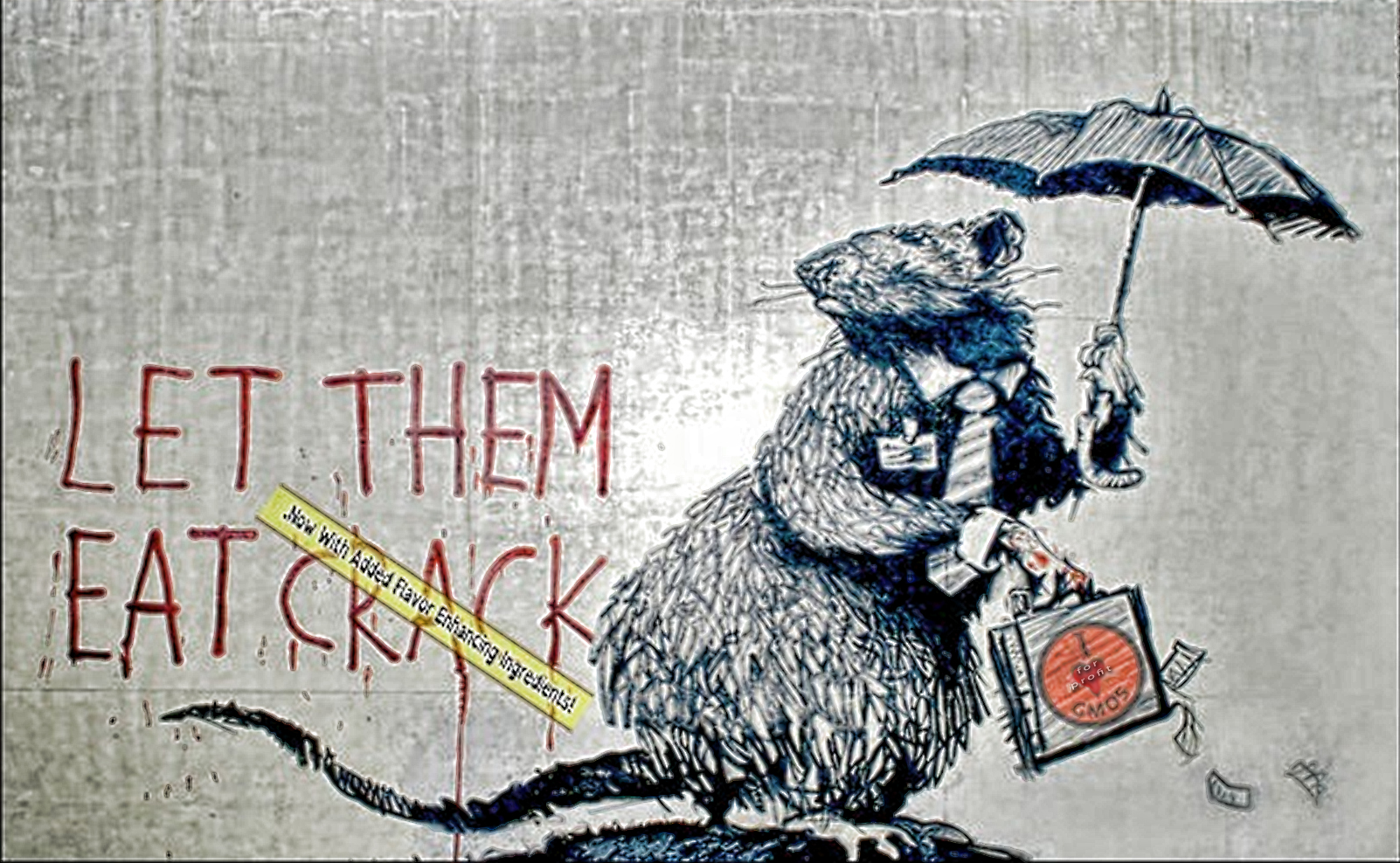News
Industry influences scientific articles and expertise

“The industry can influence the scientific literature used for […] the work of experts”. This observation was not made by NGOs opposed to Bayer, Corteva or other multinationals. It was formulated by a committee of French experts, the Anses, which is notably involved in dealing with applications for GMO and pesticide authorizations. In a report published at the beginning of March, the Scientific Council of the Anses describes the mechanisms used by industry to ensure that the opinions published are not (too) negative.
Any country issuing commercial authorizations for products that may have a health or environmental impact has one or more expert committees. These experts analyze the studies required by law and produced by industry to assess the absence of such impacts. They also study the scientific literature in its entirety to provide the most complete opinion possible. In France, the National Agency for Food, Environmental and Occupational Health Safety (Anses) produces such opinions on GMOs, pesticides… and thus informs politicians about the health and/or environmental risks of these products before they are eventually authorized commercially.
When, in March 2023, this Agency announced that it had assessed the quality and credibility of the expertise it produces, it was therefore of great interest to read the conclusions [1]. In its report, the Scientific Council of the Anses identifies several factors that limit the work of expertise: conflicts of interest, requests for expertise to be made in a hurry, factual impossibility to take into account the most recent data, too much weight of industrialists in the establishment of analysis protocols, etc. [2] Among these factors, one is particularly noteworthy. It is the control – direct or indirect – of industrials over the scientific publications that will make up the corpus of articles used by the experts.
Some scientific articles are to be read with caution
The first case of influence identified seems the most obvious. These are scientific articles on a particular product that are signed – or even written without saying so – by employees of the company marketing the product. For example, the Anses is analyzing the work of its group for urgent collective expertise (Groupe d’expertise collective en urgence – GECU) which, in 2019, examined the case of the herbicide molecule, glyphosate. The Anses Scientific Council points out that a “article then known to be ’ghostwritten’ [written in a hidden manner] by Monsanto employees (Brusick et al. 2016) was cited in the 2019 GECU report, without specific comment”. This example masks a broader breach of ethics because “beyond this particularly emblematic case, the same report cited several publications with authors affiliated with private companies (industry or private testing and contract research firms, including in several cases a signatory of the previous “ghostwritten” publication), as well as a publication funded by the Glyphosate Task Force (an industry platform of glyphosate herbicide producers).” For the Anses Scientific Council, these examples are really problematic, “the Anses [does not have] for the moment a methodology or recommendations for analyzing the links of interest in the literature and contextualizing a publication financed by a firm with an interest in a regulation that is favorable to it, or co-authored by employees of this firm”.
Some articles to sow doubts
Today, it is therefore clear that “the industry can influence the scientific literature mobilized […] for the work of internal experts or agency expert groups”, as the report states. A phenomenon that has, as the Scientific Council reminds us, already been “analyzed in scientific and journalistic works on merchants of doubt” [3]. Its extent would nevertheless be difficult “to document precisely outside the cases where corporate records are made public in court cases”. It should be noted here that the expression “merchants of doubt” has historically been used to designate those who publish or refer to scientific articles aimed at casting doubt on phenomena that could hinder the marketing of a product.
According to the report, this influence can, for example, “take the form of private funding of research whose methodologies aim to underestimate the risks of the products of the companies concerned, or to put forward alternative causalities to the risks of these products, in order to artificially maintain open controversies”, as the science historians Naomi Oreskes and Erik M. Conway for cigarettes or climate change [4]. This can also be done by creating full scientific journals, which further increases the credibility of these articles. Thus, the Scientific Committee recalls the case of “the creation of scientific journals, an example of which is the journal Regulatory Toxicology and Pharmacology, an official publication of an association dominated by scientists who work for industrial trade groups and consulting firms. For example, Velicer et al. (2017) document this journal’s ties to the tobacco industry and their consequences, and argue that the “significant representation of other industries with an interest in regulatory science (chemical, pharmaceutical, food, as well as lawyers representing industry) on the editorial board raises similar concerns for research of interest to a wide range of other industries.” Finally, a last case arises with the writing of scientific articles written “under the radar […] by employees of private companies that are signed by other scientists, or ghostwriting, as documented in the Monsanto Papers” [5]
The case of unpublished results
The influence of the industry on the scientific literature can take another form. This time, the strategy followed aims to avoid the publication of “unfavorable” articles. The report of the Anses Scientific Committee explains that “in various fields, the situation of industrialists is sufficiently favorable for the production and interpretation of knowledge to converge with their interests without them having to deploy strategic intervention”. Three situations are cited in the report as examples.
The first is what is called undone science, about “the non-existence of certain knowledge”. This is, as the Science Council informs us referring without further elaboration to the work of David Hess in 2016, the observation that certain “areas of research that could serve the public interest […] are systematically ignored” [6].
The second is what the Scientific Council calls “the institutionalized production of ignorance”. This situation is one where “institutions in charge of risk assessment are dependent on the forms of knowledge most compatible with their modes of action, which induces selection effects of available knowledge, and leads to some being ignored”. To illustrate this situation, Anses refers to the work of a CNRS researcher, Jean-Noël Jouzel [7]. The latter noted on the case of glyphosate classified as a probable carcinogen, that “all over the world, the experts responsible for assessing it for four decades have overwhelmingly reached the conclusion that glyphosate, used according to the indications on the label, does not represent an unreasonable risk of harmful effects for human populations”, as noted by Monsanto in 2017. Jean-Noël Jouzel notes that the provision of “good” pesticide use instructions by companies has created an “industrial and institutional belief in the possible controlled use of pesticides”. However, the accumulation of epidemiological data showing the negative impacts of pesticides has not, in his opinion, called into question this blind faith in good agricultural practice guidelines.
The third and last situation is the non-publication of scientific results of experiments. It is not a question here of unpublished results following a blockade by a company armed with its patents, as Inf’OGM has informed [8]. This time, it is about “situations where expertise depends on unpublished industrial data”. Sociologists Henri Boullier and Emmanuel Henry, cited by Anses, thus described, in 2021, that “the regulation of industrial chemicals places public institutions (regulatory agencies, States or the European Commission) in a particularly marked situation of dependence on industrial actors. The latter are not only responsible for the production of molecules that must be assessed, but also, in many cases, for the data on which the assessment must be based. This situation makes the organization of scientific expertise particularly problematic, because it is difficult to escape the grip of the knowledge and strategies of industrial actors [9].
In 2012, Inf’OGM had reported a case explained in the journal Nature perfectly illustrating some of these situations [10]. Emily Waltz reported the case of a researcher who had wished to remain anonymous. The researcher had been working, at Pioneer’s request, on analyzing the impacts of Cry34Ab1/Cry35Ab1 GM corn, modified to kill the corn rootworm, on non-target insects. The results showed that nearly 100% of ladybug larvae fed on the corn died after the eighth day of their life cycle. Still according to this anonymous researcher, if Pioneer forbade the publication of these results, it was able to learn from them in order to constitute a request for authorization based on analyses studying the impacts during seven days (that is to say one day less than the unpublished results!) or with a different diet of the larvae. According to the anonymous university researcher, the US administration, warned of this bias and the unpublished results, chose to do nothing and issued the authorization. Although Pioneer justified itself by explaining that the constructs studied were not the same, the researcher remains certain of “the scam”. An example that includes both unpublished scientific results and the sometimes too strong dependence of experts on company data alone…
The report finally recalls that, as early as 2016, the Anses alerted to some of these “problematic” situations. It described that “several research studies, in various fields, have shown that full or partial funding of the study by industry or service sector actors influences the published results. A statistical analysis of the studies shows a significant over-representation of results favourable to industrialists when the research has received funding from them”. A risky situation that the Agency recognized it had only “recently begun to understand”…
[1] Anses Scientific Council, “Avis relatif au rapport du GT” Crédibilité de l’expertise scientifique “issu du Conseil scientifique”, 9 March 2023
[2] , « A french expert committee transparent on the limits of its own expertise », Inf’OGM, 28 April 2023.
[3] Oreskes, N.; Conway, E.M., “Merchants of Doubt: How a Handful of Scientists Obscured the Truth on Issues from Tobacco Smoke to Global Warming”, ed. Bloomsbury Press, New York, 2010
[4] Oreskes, N., ibid.
[5] Horel S., Foucart S., « Monsanto papers », désinformation organisée autour du glyphosate, Le Monde, October 4, 2017.
[6] Hess, D.J., “Undone Science. Social Movements, Mobilized Publics, and Industrial Transitions”, MIT Press, Cambridge, Massachusetts, USA, London, UK, 7 October 2016.
[7] Jouzel, J.-N., “Pesticides: how to ignore what we know”, ed. Presses de Sciences Po, Paris, 2019
[8] , « A french expert committee transparent on the limits of its own expertise », Inf’OGM, 28 April 2023.
[9] Henry E., Boullier H., “L’expertise chimique sous emprise industrielle : quand la gestion des conflits d’intérêts masque inégalités et rapports de pouvoir”, Sciences Sociales et Santé, 38(3), 49-76, 2021
[10] , « Etats-Unis : les brevets ne bloquent plus (complètement) la recherche », Inf’OGM, 8 October 2012 (in french)










